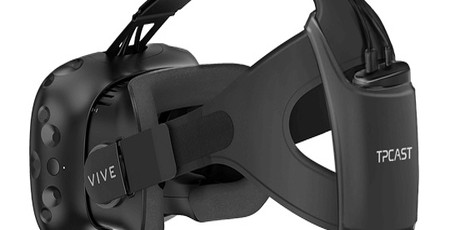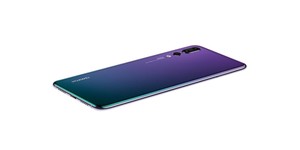
Huawei and TPCast have announced a memorandum of understanding (MOU) for a joint venture which, they claim, will do away with the need for high-end hardware to enjoy virtual reality.
Announced just ahead of the Global Mobile Broadband Forum, the agreement between Huawei's Wireless X Labs division and TPCast, which is best known for adding wireless capabilities to HTC's Vive virtual reality (VR) headset, will see the companies work on a platform to have the heavy computational work of VR rendering performed on remote cloud systems and beamed to end-users' headsets via a 5G cellular network connection.
'TPCast is excited to work with Wireless X Labs and develop the 5G cloud VR rendering solution,' crows Michael Liu, TPCast chief executive, of the agreement. 'TPCast's ultra-low latency codec and real-time VR data control protocol make cloud rendering possible. We are dedicated to working with Huawei to optimise our cloud rendering technologies and improve VR experience. We are currently the only wireless VR solution provider that has successfully completed the world's first adoption of Wireless VR HMDs. It is our solemn and inescapable duty to improve the cloud VR rendering solution. In addition, we have accumulated an abundance of technical experience and resources, which can help implement this solution.'
'Cloud VR is an important use case for 5G networks. The connections between VR terminals and the cloud are crucial to deliver an optimal VR user experience,' adds Wang Yufeng, director of the networking-centric arm of Huawei. '5G networks can provide low latency and large bandwidth required by cloud rendering and content release. Huawei will provide world leading 5G network technologies and test environments and is honoured to partner with TPCast to verify cloud VR, laying a solid foundation for future trials and commercial deployment on many operators' networks.'
While technical details regarding the planned platform are thin on the ground, the companies have indicated that the system will increase the computing power available to VR renderers in order to 'sharply improve the computing and image processing capabilities [which] enables hardware resource sharing among multiple users and reduces investment' while also using 'ubiquitous mobile networks [which] allow for the usage of cloud VR without geographical restrictions.'
Although TPCast's algorithms have proven efficacious enough for HTC to give its blessing to a short-range Vive wireless adapter, however, the idea of performing remote rendering in a server farm and beaming the result down to the user over a cellular network - even a 5G network - would seem rife with difficulties from signal drop-outs to latency issues. Neither company has yet indicated how these issues will be resolved by the proposed platform.

MSI MPG Velox 100R Chassis Review
October 14 2021 | 15:04









Want to comment? Please log in.